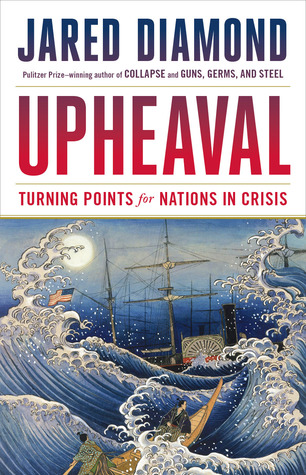More on this book
Community
Kindle Notes & Highlights
Read between
June 21 - July 10, 2022
State spending per student on public higher education varies 11-fold among American states, depending on variation in state wealth, in tax revenues, and in political philosophies. Within the same state, it varies among districts: poorer districts and poorer states have less-well-funded schools. That fact tends to make geographic variation in poverty within the U.S. self-perpetuating, because education is so important for economic performance.
Finnish parents (unlike American parents) can’t buy a better education for their children by sending them to private school.
While we have by far the largest population among wealthy democracies, most of that population is not being trained for the skills that are the engine of our national economic growth.
much of our tax money is going toward government expenditures on prisons, the military, and health. In all three of those categories, our expenditures far exceed those of other major democracies.
As for our expenditures for health, it would seem natural to consider them as investments in our future—until one examines their uses and outcomes. In health outcomes the United States ranks below all other major democracies, by measures such as life expectancy, infant mortality, and maternal mortality. That’s because the U.S. has high health-related expenditures for purposes not leading to healthy outcomes, such as high insurance premiums charged by our for-profit health insurance companies, high administrative costs, high costs of prescription drugs, high costs of medical malpractice
...more
our fundamental problems are our polarization, voter turnout and obstacles to voter registration, inequality and declining socio-economic mobility, and declining government investment in education and public goods. Large numbers of American politicians and voters are working hard to make those problems worse rather than to solve them.
the one that most flagrantly does not characterize the U.S. is willingness to learn from models of alternative coping methods practiced by other countries (factor #5). Our refusal to learn is related to our belief in American “exceptionalism”: i.e., our belief that the U.S. is so unique that nothing that any other country does could be applicable to us.
European governments support health care, public transport, education, senior citizens, the arts, and other aspects of life by means of government investments in policies that Americans tend to dismiss as “socialist.” Although per-capita income is somewhat higher in the U.S. than in most European countries, life expectancy and measures of personal satisfaction are consistently higher in Western Europe.
But the cruel realities of world resource levels guarantee that the American way of life will change; those realities of world resources cannot be negotiated out of existence. We Americans certainly will sacrifice our consumption rates, whether we decide to do so or not, because the world can’t sustain our current rates.
Much American consumption is wasteful and doesn’t contribute to high quality of life. For example, per-capita oil consumption rates in Western Europe are about half those in the U.S., but the well-being of the average Western European is higher than that of the average American by any meaningful criterion, such as life expectancy, health, infant mortality, access to medical care, financial security after retirement, vacation time, quality of public schools, and support for the arts.
Humanity lacks wide acknowledgment of a shared identity (factor #6) and shared core values (factor #11) contrasting with the identities and values prevailing on other planets.
the seemingly inexorable depletion of world resources, the rise of world CO2 levels, and the worldwide scale of inequality leave us little room for experiment and maneuver. All of those cruel realities make many people feel pessimistic or hopeless about humanity’s prospects for a decent future.
Globalization both causes problems and facilitates solutions of problems. One ominous thing that globalization means today is the growth and spread of problems around the world: resource competition, global wars, pollutants, atmospheric gases, diseases, movements of people, and many other problems. But globalization also means something encouraging: the growth and spread of factors contributing to solutions of those world problems, such as information, communication, recognition of climate change, a few dominant world languages, widespread knowledge of conditions and solutions prevailing
...more
The U.S., as I write, is still in widespread denial of our own major problems: political polarization, low voter turnout, obstacles to voter registration, inequality, limited socio-economic mobility, and decreasing government investment in public goods.
Skepticism about science is increasingly widespread in the U.S., and that’s a very bad portent, because science is basically just the accurate description and understanding of the real world.


